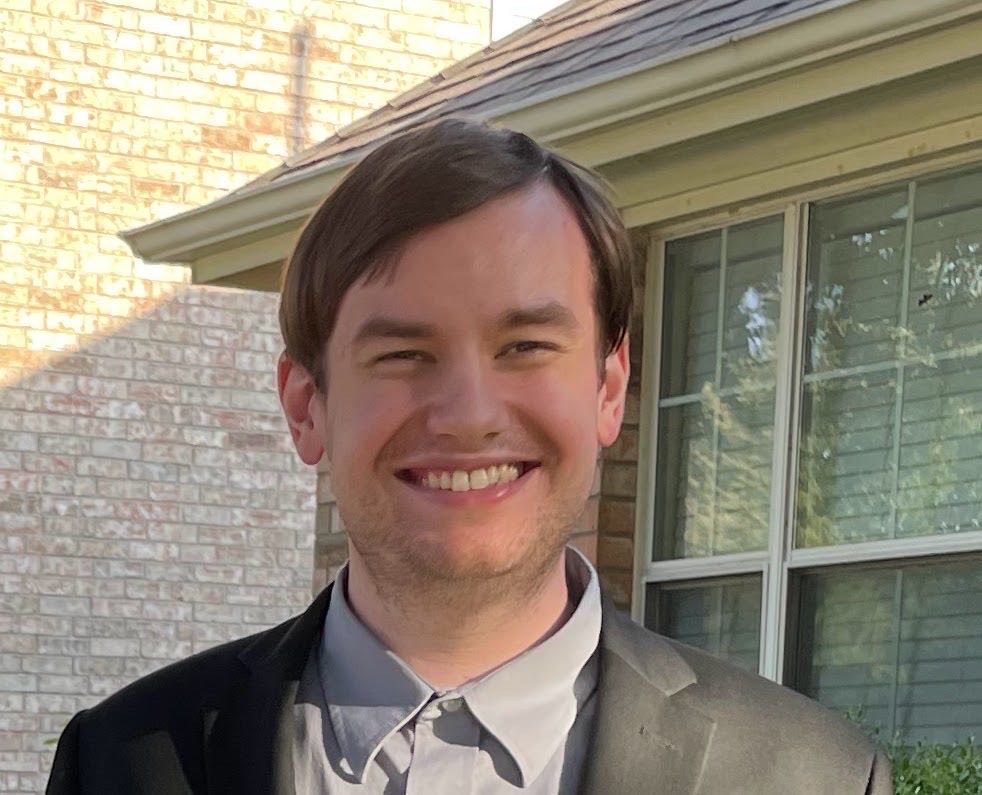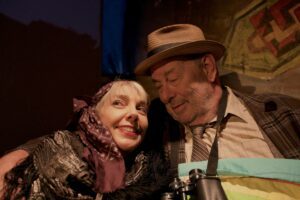To be or not to be: How Shakespeare Dallas is bringing Hamlet to life for a modern audience
An in-depth look at how Shakespeare Dallas has brought Hamlet to the stage this season
This post originally appeared in the North Texas e-News
Dallas, Texas — Many people’s first exposure to William Shakespeare comes in the uncomfortable confines of a high school classroom. It’s an unfortunate reality that’s created bad memories for many regarding some of the world’s most famous plays, something which Shakespeare Dallas is well aware of and working hard to change.
“Our education department over here, we call it the ‘Shakespeare Scaries’ and that’s because most people’s first interaction with Shakespeare is just very dreadful” Shakespeare Dallas Marketing Manager Sterling Arroyo said. “It’s gray walls in a small classroom with your head down, reading out loud, not really understanding what you’re saying, and so that’s why we try to get out in the community as much as possible so that we become the next point of contact when people are introduced to Shakespeare again.”
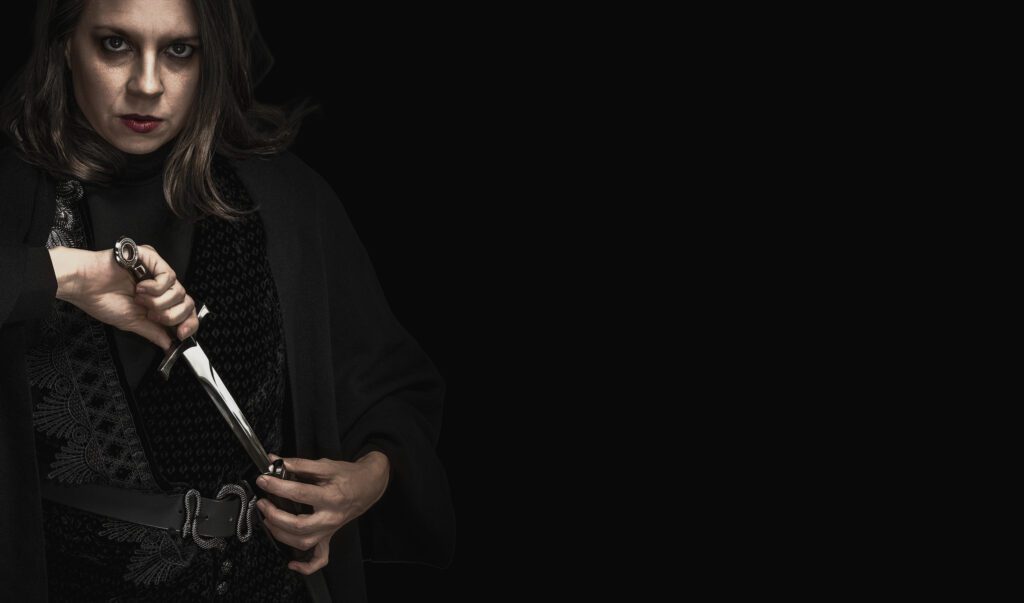
Shakespeare Dallas, one of North Texas’ most storied practitioners of Shakespeare’s plays, offers a variety of education classes ranging from childhood summer camps to adult education opportunities to reach out to the local community. Nonetheless, it’s a tall task to erase those uncomfortable memories while still providing an authentic Shakespearean experience on stage that’s open and accessible for modern audiences, yet that’s just what the company, led by Executive and Artistic Director Raphael Parry, aims to do during each production.
Now in its 50th season, Shakespeare Dallas is currently in the midst of a unique production of the classic tragedy Hamlet, the final play of this year’s Shakespeare in the Park series at the Samuell-Grand Amphitheatre before the company moves indoors for the winter.
Parry, a Shakespearean actor in his own right who’s been in his current role with Shakespeare Dallas since 2008, explained that the company’s production differs from traditional performances in several ways that will interest current-day audiences, starting with its all-women cast. That creative choice came thanks to Hamlet’s Director, Christie Vela, who approached Parry early on with the idea.
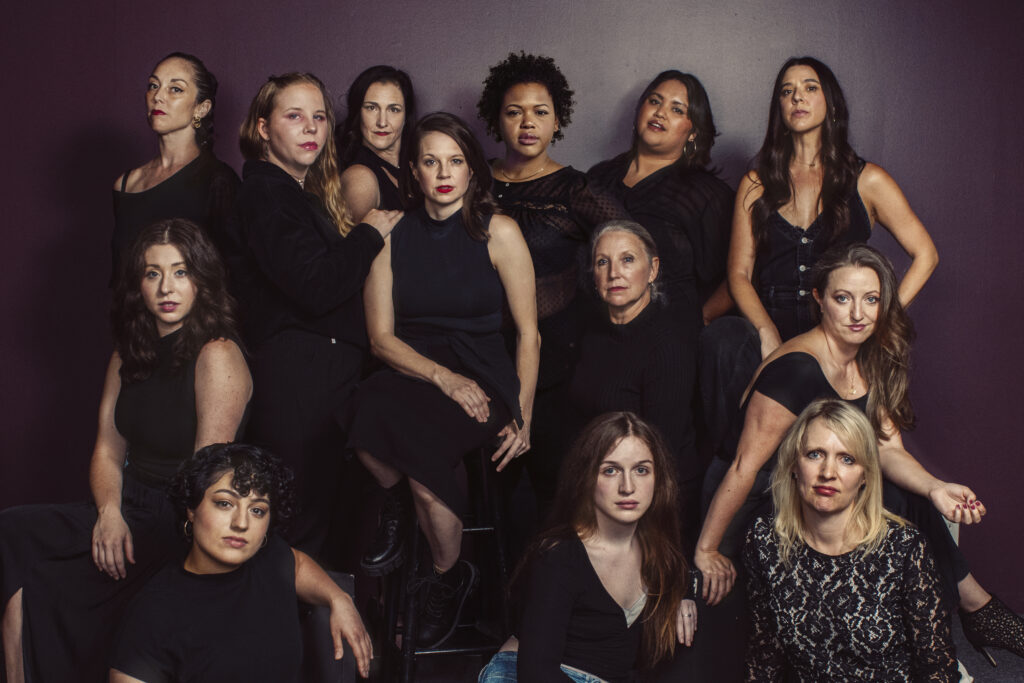
“It was a pretty fast decision,” Parry said of approving the all-female cast. “I’ve worked with Christie for decades, so she and I have built kind of an innate trust with each other. So, in this situation, I believe in her artistic vision and knew she would deliver a brilliant production.”
Parry said he views the decision as an extension of the current environment of female empowerment and has already seen how the production has inspired some of those in the audience who have seen the play.
“We had a young girl, like 11-12 years old, come up to our Hamlet, ask for an autograph on a napkin after the show the other night and said, “I want to grow up to be like you, and one day I want to grow up to play Hamlet,’” Parry said later adding that he felt the all-female cast also helped him to “re-engage” with this play he knows and has acted in himself.
While the all-female cast may be the most attention-grabbing departure from traditional performances, although Parry did note that single gender, all-male performances were the norm in Shakespeare’s time, the team behind Shakespeare Dallas’ Hamlet also went to great lengths to create an accessible performance for an everyday audience, starting with some departures from the script.
“The director and Jenny Ledel, who is the lead – Hamlet, they excised about an hour’s worth of text just to get it down to three hours, and it’s a very fast three hours,” Parry said explaining that the creative team first typically cuts jokes or references to Elizabethan times that no longer translate to modern audiences along with any small amount of incomprehensible language without a clear translation or meaning.
“What you’re trying to save is as much of the themes of the language that makes sense to a 21st century audience, and there’s a surprising amount that’s still relevant,” Parry said, adding that the primary goal is to keep the play as authentic to Shakespeare’s original work as possible in that regard. “We do take some liberties at moving scenes around a little bit, but rarely do we ever add language that’s not Shakespearean language.”
“Our artists that we employ here, they always have at the forefront of their mind that we are doing classical text for a modern audience,” Arroyo added. “So while it might be artistically fulfilling to do the full unabridged text of Hamlet, we’re always keeping in mind the people that we’re serving and keeping the play as concise as possible while still keeping the human stories intact.”
In a way, that means that the production team has to subject itself to a bit of those so-called ‘Shakespeare Scaries’ to ensure a cohesive, understandable and authentic production that current audiences will enjoy. Parry said that each of Shakespeare Dallas’ rehearsals usually start with a whole week dedicated just to reading and interpreting Shakespeare’s language.
“We spend the first week typically just making sure everybody pronounces the words correctly and knows what they’re saying, so we call that table work,” Parry said. “And it’s always surprising to our patrons that we literally sit around a table with all these thesauruses and different versions of the play, walking through and speaking through the play, stopping and saying, ‘what does that word mean?’ and looking it up and making sure we understand it because, you know, it’s Shakespeare.”
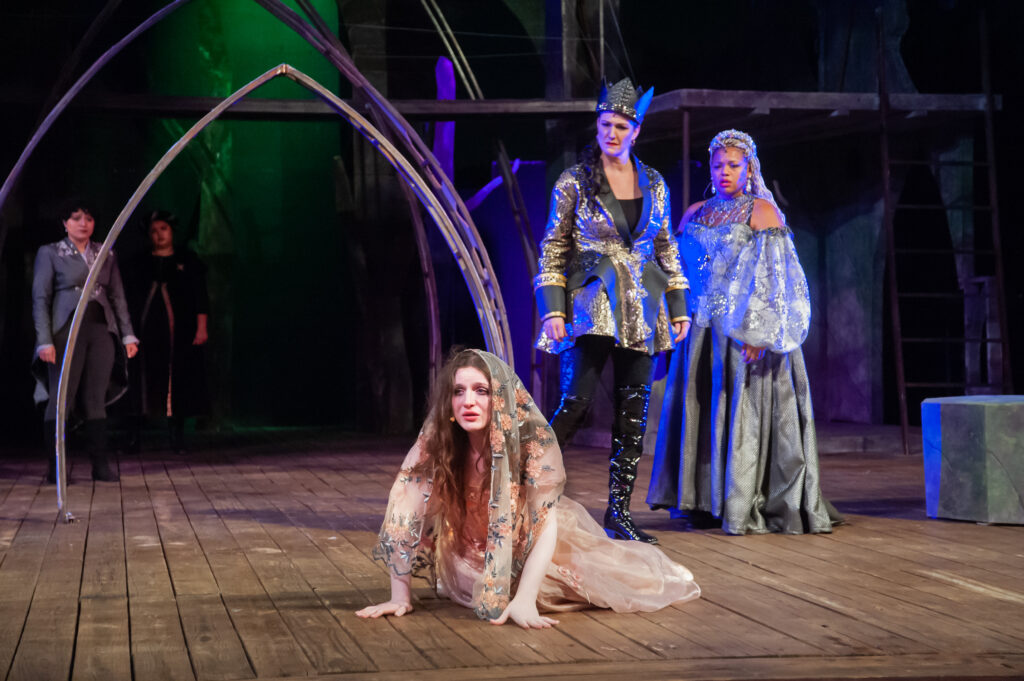
After the cast gets a firm grasp of their respective lines, the physical work on stage begins followed by the addition of technical elements like lighting and costumes. The entire rehearsals therefore take around 6 weeks according to Parry, although the lead actors often enter rehearsals having already been workshopping some of their biggest moments. Parry, who also acted as the production’s text coach working with actors to ensure they’re properly reciting their lines, said that Ledel tried to come in “off book” meaning she already memorized her most significant monologues or soliloquies as Hamlet before rehearsals started.
“Jenny, in particular, was just flying through that language and really knew her verse well which you can hear it when she talks,” Parry said. “It sounds so completely natural when she’s speaking, and it (her dialogue) flies.”
In other words, audiences can see the result of all the hard work that goes into the production pay off on stage during one of the theater’s remaining performances of Hamlet, which is currently running through October 15.
Tickets are $20 for standard admission for adults with Shakespeare Dallas also offering free ticket vouchers through area parks and recreation centers.
“We believe that Shakespeare is for everyone,” Arroyo said. “It’s not just for people of a particular socioeconomic class. It’s for all education backgrounds, all income levels, and we just love storytelling and sharing the words and poetry of William Shakespeare with everyone.”
For more information about Shakespeare Dallas or its production of Hamlet, including how to purchase tickets, visit https://www.shakespearedallas.org/.

